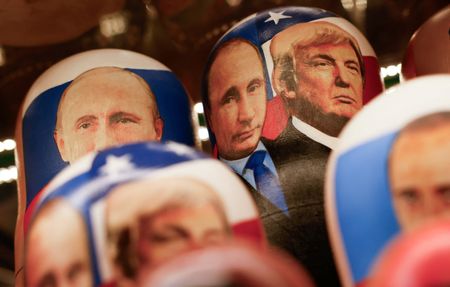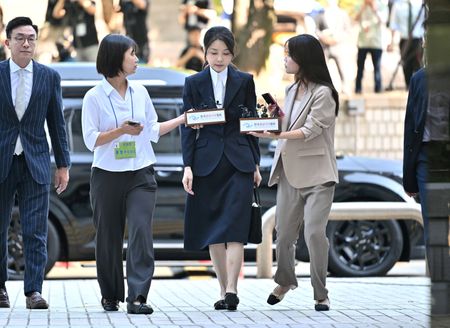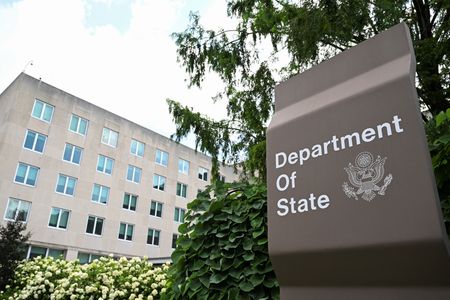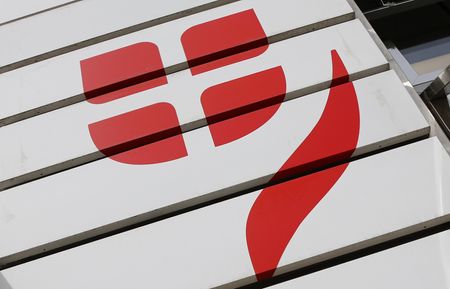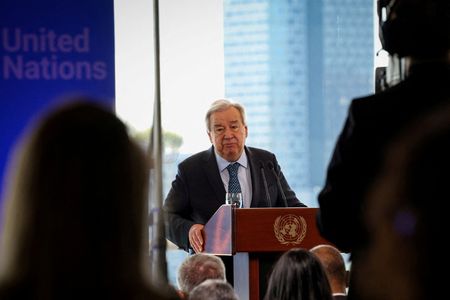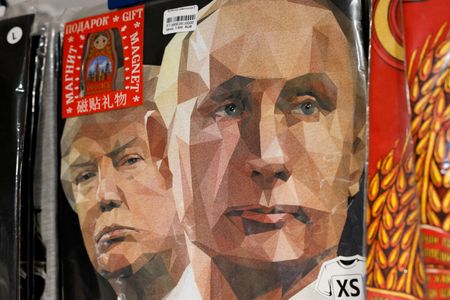(Reuters) -U.S. President Donald Trump and Russian President Vladimir Putin will discuss a possible deal to end the war in Ukraine when they meet on Friday in Alaska for a summit that is also likely to affect wider European security.
European leaders and Ukrainian President Volodymyr Zelenskiy plan to speak with Trump on Wednesday amid fears that Washington, hitherto Ukraine’s leading arms supplier, may seek to dictate unfavourable peace terms to Kyiv.
WHAT KIND OF DEAL COULD EMERGE FROM SUMMIT?
Trump said last Friday that there would be “some swapping of territories to the betterment of both”.
This prompted consternation in Kyiv and European capitals that Russia could be rewarded for 11 years of efforts – the last three in full-blown war – to seize Ukrainian land. It occupies about 19% of Ukraine. Ukraine controls no Russian territory.
“It’s a reasonable concern to think that Trump will be bamboozled by Putin and cut a terrible deal at Ukraine’s expense,” said Daniel Fried, a former senior U.S. diplomat now with the Atlantic Council think-tank.
But “better outcomes” for Ukraine were possible if Trump and his team “wake up to the fact that Putin is still playing them”.
One could entail agreeing an “armistice line” instead of a transfer of territory, with only de facto – not legal – recognition of Russia’s current gains.
Any sustainable peace deal would also have to tackle such issues as future security guarantees for Ukraine, its aspirations to join NATO, the restrictions demanded by Moscow on the size of its military, and the future of Western sanctions on Russia.
Trump has not commented on those issues since announcing the summit with Putin, though his administration has said Ukraine cannot join NATO.
Diplomats say there is an outside possibility that Trump might instead strike a unilateral deal with Putin, prioritising lucrative energy contracts and potential arms control accords. Trump himself has said he might conclude in Alaska that a Ukraine peace deal cannot be done.
The White House did not respond to a request for comment on the possibility of Trump clinching a unilateral deal with Putin.
WHAT IF UKRAINE OBJECTS TO ANY TRUMP-PUTIN DEAL?
Trump would face strong resistance from Zelenskiy and his European allies if any deal expected Ukraine to cede territory.
Zelenskiy says Ukraine’s constitution prohibits such an outcome unless there is a referendum to change it.
Trump could try to coerce Kyiv to accept such a deal by threatening to stop arms supplies and intelligence sharing.
But analysts say there is more chance Ukraine might accept a freezing of battlelines and an unstable, legally non-binding partition.
One European official told Reuters that, even if Trump did renege on recent promises to resume arms supplies to Ukraine, he was likely to continue allowing Europe to buy U.S. weapons on Ukraine’s behalf.
“The loss of U.S. intelligence capabilities would be the hardest element to replace. Europe can’t even come close to providing that support,” said the official, speaking on condition of anonymity.
HOW MIGHT A DEAL AFFECT TRUMP’S SUPPORT AT HOME?
There would be big political risks in the U.S. for Trump in abandoning Ukraine, said John Herbst, a former U.S. ambassador to Kyiv, now with the Atlantic Council.
This would portray him as “an accomplice in Putin’s rape of Ukraine … I don’t think Trump wants to be seen that way, for sure”, he said.
Despite his strong political position at home, Trump would also come under fire even from parts of the American right if he were to be seen as caving in to Russia.
“To reward Putin … would be to send the exact opposite message that we must be sending to dictators, and would-be-dictators, across the globe,” Brian Fitzpatrick, a Republican lawmaker and former FBI agent, said on X last week.
HOW MIGHT UKRAINE’S EUROPEAN ALLIES RESPOND?
EU member states said on Tuesday that Ukraine must be free to decide its own future and that they were ready to contribute further to security guarantees for Kyiv.
Oana Lungescu, a former NATO spokesperson now with the RUSI think-tank, said European states must move much faster to arm Ukraine, and start EU accession talks in September.
Jana Kobzova, senior policy fellow at the European Council on Foreign Relations, said that “… if an unacceptable deal emerges from Alaska, European capitals will go into yet another diplomatic and charm offensive vis-a-vis Trump”.
“European leaders are increasingly aware that the future of Ukraine’s security is inseparable from that of the rest of Europe – and they can’t let Putin alone decide its future shape and form.”
(Reporting by Reuters reporters in Washington, London, Brussels, Berlin, Moscow and Kyiv; Writing by Gareth Jones; Editing by Kevin Liffey)

